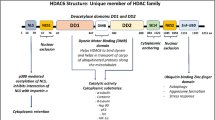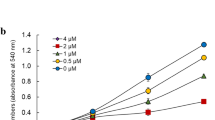Abstract
The post-transcriptional processing of N6-methyladenosine (m6A)-modified mRNA by YTH domain-containing family protein 1 (YTHDF1) plays a crucial role in the regulation of gene expression. Although YTHDF1 expression is frequently upregulated in breast cancer, the regulatory mechanisms for this remain unclear. In this study, we examined the role of peptidyl-prolyl cis-trans isomerase NIMA-interacting 1 (PIN1) in regulating YTHDF1 stability in breast cancer cells. The WW domain of PIN1 interacted with YTHDF1 in a phosphorylation-dependent manner. Additionally, PIN1 overexpression increased YTHDF1 stability by preventing ubiquitin-dependent proteasomal degradation. Furthermore, using the MS2-tagged RNA pull-down assay, we identified Aurora kinase A (AURKA) mRNA as a bona fide substrate of YTHDF1. PIN1-mediated YTHDF1 stabilization increased the stability of AURKA mRNA in an m6A-dependent manner. Furthermore, YTHDF1 knockout reduced AURKA protein expression levels, resulting in anticancer effects in breast cancer cells, including decreased cell proliferation, cell cycle arrest at the G0/G1 phase, apoptotic cell death, and decreased spheroid formation. The anticancer effects induced by YTHDF1 knockout were reversed by AURKA overexpression. Similarly, the knockout of PIN1 produced comparable anticancer effects to those observed in YTHDF1-knockout cells, and these effects were reversed upon overexpression of YTHDF1. In conclusion, the findings of our study suggest that increased YTHDF1 stability induced by PIN1 promotes breast tumorigenesis via the stabilization of AURKA mRNA. Targeting the PIN1/YTHDF1 axis may represent a novel therapeutic strategy for breast cancer.






Similar content being viewed by others
References
Bhattarai PY, Kim G, Lim S-C, Mariappan R, Ohn T, Choi HS (2023) METTL3 stabilization by PIN1 promotes breast tumorigenesis via enhanced m6A-dependent translation. Oncogene 42:1010–1023. https://doi.org/10.1038/s41388-023-02617-6
Chen Z, Zhong X, Xia M, Zhong J (2021) The roles and mechanisms of the m6A reader protein YTHDF1 in tumor biology and human diseases. Mol Ther Nucleic Acids 26:1270–1279. https://doi.org/10.1016/j.omtn.2021.10.023
Chen H, Yu Y, Yang M, Huang H, Ma S, Hu J, Xi Z, Guo H, Yao G, Yang L, Huang X, Zhang F, Tan G, Wu H, Zheng W, Li L (2022) YTHDF1 promotes breast cancer progression by facilitating FOXM1 translation in an m6A-dependent manner. Cell Biosci 12:19. https://doi.org/10.1186/s13578-022-00759-w
Deng X, Qing Y, Horne D, Huang H, Chen J (2023) The roles and implications of RNA m6A modification in cancer. Nat Rev Clin Oncol 20:507–526. https://doi.org/10.1038/s41571-023-00774-x
Dominissini D, Moshitch-Moshkovitz S, Salmon-Divon M, Amariglio N, Rechavi G (2013) Transcriptome-wide mapping of N6-methyladenosine by m6A-seq based on immunocapturing and massively parallel sequencing. Nat Protoc 8:176–189. https://doi.org/10.1038/nprot.2012.148
Du H, Zhao Y, He J, Zhang Y, Xi H, Liu M, Ma J, Wu L (2016) YTHDF2 destabilizes m6A-containing RNA through direct recruitment of the CCR4–NOT deadenylase complex. Nat Commun 7:12626. https://doi.org/10.1038/ncomms12626
Du R, Huang C, Liu K, Li X, Dong Z (2021) Targeting AURKA in cancer: molecular mechanisms and opportunities for cancer therapy. Mol Cancer 20:15. https://doi.org/10.1186/s12943-020-01305-3
Einstein JM, Perelis M, Chaim IA, Meena JK, Nussbacher JK, Tankka AT, Yee BA, Li H, Madrigal AA, Neill NJ, Shankar A, Tyagi S, Westbrook TF, Yeo GW (2021) Inhibition of YTHDF2 triggers proteotoxic cell death in MYC-driven breast cancer. Mol Cell 81:3048-3064e9. https://doi.org/10.1016/j.molcel.2021.06.014
Embade N, Fernández-Ramos D, Varela-Rey M, Beraza N, Sini M, Gutiérrez De Juan V, Woodhoo A, Martínez-López N, Rodríguez-Iruretagoyena B, Bustamante FJ, De La Hoz AB, Carracedo A, Xirodimas DP, Rodríguez MS, Lu SC, Mato JM, Martínez-Chantar ML (2012) Murine double minute 2 regulates Hu antigen R stability in human liver and colon cancer through NEDDylation. Hepatology 55:1237–1248. https://doi.org/10.1002/hep.24795
Erales J, Coffino P (2014) Ubiquitin-independent proteasomal degradation. biochimica et biophysica Acta (BBA). Mol Cell Res 1843:216–221. https://doi.org/10.1016/j.bbamcr.2013.05.008
Eterno V, Zambelli A, Villani L, Tuscano A, Manera S, Spitaleri A, Pavesi L, Amato A (2016) AurkA controls self-renewal of breast cancer-initiating cells promoting wnt3a stabilization through suppression of miR-128. Sci Rep 6:28436. https://doi.org/10.1038/srep28436
Fang R, Chen X, Zhang S, Shi H, Ye Y, Shi H, Zou Z, Li P, Guo Q, Ma L, He C, Huang S (2021) EGFR/SRC/ERK-stabilized YTHDF2 promotes cholesterol dysregulation and invasive growth of glioblastoma. Nat Commun 12:177. https://doi.org/10.1038/s41467-020-20379-7
Filippi A, Mocanu MM (2023) Mining TCGA database for genes with prognostic value in breast cancer. Int J Mol Sci 24:1622. https://doi.org/10.3390/ijms24021622
Hargrove JL, Schmidt FH (1989) The role of mRNA and protein stability in gene expression. Faseb j 3:2360–2370. https://doi.org/10.1096/fasebj.3.12.2676679
Khanal P, Yun HJ, Lim SC, Ahn SG, Yoon HE, Kang KW, Hong R, Choi HS (2012) Proyl isomerase Pin1 facilitates ubiquitin-mediated degradation of cyclin-dependent kinase 10 to induce tamoxifen resistance in breast cancer cells. Oncogene 31:3845–3856. https://doi.org/10.1038/onc.2011.548
Kim G, Bhattarai PY, Choi HS (2019) Peptidyl-prolyl cis/trans isomerase NIMA-interacting 1 as a molecular target in breast cancer: a therapeutic perspective of gynecological cancer. Arch Pharm Res 42:128–139. https://doi.org/10.1007/s12272-019-01122-3
Kim YJ, Lee Y, Shin H, Hwang S, Park J, Song EJ (2023) Ubiquitin–proteasome system as a target for anticancer treatment—an update. Arch Pharm Res. https://doi.org/10.1007/s12272-023-01455-0
Krishnan N, Titus MA, Thapar R (2014) The prolyl isomerase pin1 regulates mRNA levels of genes with short half-lives by targeting specific RNA binding proteins. PLoS One 9:e85427. https://doi.org/10.1371/journal.pone.0085427
Kumar R (2009) Pin1 regulates parathyroid hormone mRNA stability. J Clin Invest 119:2887–2891. https://doi.org/10.1172/jci40784
Kuo CT, Wang JY, Lin YF, Wo AM, Chen BPC, Lee H (2017) Three-dimensional spheroid culture targeting versatile tissue bioassays using a PDMS-based hanging drop array. Sci Rep 7:4363. https://doi.org/10.1038/s41598-017-04718-1
Li C, Xiao ZX (2014) Regulation of p63 protein stability via ubiquitin-proteasome pathway. Biomed Res Int 2014:175721. https://doi.org/10.1155/2014/175721
Li J, Chen K, Dong X, Xu Y, Sun Q, Wang H, Chen Z, Liu C, Liu R, Yang Z, Mei X, Zhang R, Chang L, Tian Z, Chen J, Liang K, He C, Luo M (2022) YTHDF1 promotes mRNA degradation via YTHDF1-AGO2 interaction and phase separation. Cell Prolif 55:e13157. https://doi.org/10.1111/cpr.13157
Li W, Deng X, Chen J (2022) RNA-binding proteins in regulating mRNA stability and translation: roles and mechanisms in cancer. Sem Cancer Biol 86:664–677. https://doi.org/10.1016/j.semcancer.2022.03.025
Lin C, Gao Y, Xu S, Yuan J, Wang M, Li T, Gong J (2023) N6-methyladenosine reader YTHDF family in biological processes: structures, roles, and mechanisms. Front Immunol. https://doi.org/10.3389/fimmu.2023.1162607
Liu J, Yue Y, Han D, Wang X, Fu Y, Zhang L, Jia G, Yu M, Lu Z, Deng X, Dai Q, Chen W, He C (2014) A METTL3–METTL14 complex mediates mammalian nuclear RNA N6-adenosine methylation. Nat Chem Biol 10:93–95. https://doi.org/10.1038/nchembio.1432
Lu KP, Finn G, Lee TH, Nicholson LK (2007) Prolyl cis-trans isomerization as a molecular timer. Nat Chem Biol 3:619–629. https://doi.org/10.1038/nchembio.2007.35
Micaelli M, Dalle Vedove A, Cerofolini L, Vigna J, Sighel D, Zaccara S, Bonomo I, Poulentzas G, Rosatti EF, Cazzanelli G, Alunno L, Belli R, Peroni D, Dassi E, Murakami S, Jaffrey SR, Fragai M, Mancini I, Lolli G, Quattrone A, Provenzani A (2022) Small-molecule Ebselen binds to YTHDF proteins interfering with the recognition of N6-methyladenosine-modified RNAs. ACS Pharmacol Trans Sci 5:872–891. https://doi.org/10.1021/acsptsci.2c00008
Min S-H, Zhou XZ, Lu KP (2016) The role of Pin1 in the development and treatment of cancer. Arch Pharm Res 39:1609–1620. https://doi.org/10.1007/s12272-016-0821-x
Niu Y, Lin Z, Wan A, Chen H, Liang H, Sun L, Wang Y, Li X, Xiong XF, Wei B, Wu X, Wan G (2019) RNA N6-methyladenosine demethylase FTO promotes breast tumor progression through inhibiting BNIP3. Mol Cancer 18:46. https://doi.org/10.1186/s12943-019-1004-4
Sharma RK, Chafik A, Bertolin G (2023) Aurora kinase A/AURKA functionally interacts with the mitochondrial ATP synthase to regulate energy metabolism and cell death. Cell Death Discovery 9:203. https://doi.org/10.1038/s41420-023-01501-2
Shi R, Ying S, Li Y, Zhu L, Wang X, Jin H (2021) Linking the YTH domain to cancer: the importance of YTH family proteins in epigenetics. Cell Death Dis 12:346. https://doi.org/10.1038/s41419-021-03625-8
Sikorski V, Selberg S, Lalowski M, Karelson M, Kankuri E (2023) The structure and function of YTHDF epitranscriptomic m6A readers. Trends Pharmacol Sci 44:335–353. https://doi.org/10.1016/j.tips.2023.03.004
Staff S, Isola J, Jumppanen M, Tanner M (2010) Aurora-A gene is frequently amplified in basal-like breast cancer. Oncol Rep 23:307–312
Sun HL, Zhu AC, Gao Y, Terajima H, Fei Q, Liu S, Zhang L, Zhang Z, Harada BT, He YY, Bissonnette MB, Hung MC, He C (2020) Stabilization of ERK-phosphorylated METTL3 by USP5 increases m(6)a methylation. Mol Cell 80:633-647e7. https://doi.org/10.1016/j.molcel.2020.10.026
Sun Y, Dong D, Xia Y, Hao L, Wang W, Zhao C (2022) YTHDF1 promotes breast cancer cell growth, DNA damage repair and chemoresistance. Cell Death Dis 13:230. https://doi.org/10.1038/s41419-022-04672-5
Weier HU, Mao JH (2013) Meta-analysis of aurora kinase A (AURKA) expression data reveals a significant correlation between increased AURKA expression and distant metastases in human ER-positive breast cancers. J Data Mining Genom Proteomics 4:127. https://doi.org/10.4172/2153-0602.1000127
Xu C, Wang X, Liu K, Roundtree IA, Tempel W, Li Y, Lu Z, He C, Min J (2014) Structural basis for selective binding of m6A RNA by the YTHDC1 YTH domain. Nat Chem Biol 10:927–929. https://doi.org/10.1038/nchembio.1654
Zaccara S, Jaffrey SR (2020) A unified model for the function of YTHDF proteins in regulating m(6)A-Modified mRNA. Cell 181:1582-1595e18. https://doi.org/10.1016/j.cell.2020.05.012
Zaccara S, Ries RJ, Jaffrey SR (2019) Reading, writing and erasing mRNA methylation. Nat Rev Mol Cell Biol 20:608–624. https://doi.org/10.1038/s41580-019-0168-5
Zhao W, Cui Y, Liu L, Ma X, Qi X, Wang Y, Liu Z, Ma S, Liu J, Wu J (2020) METTL3 facilitates oral squamous cell carcinoma tumorigenesis by enhancing c-Myc Stability via YTHDF1-Mediated m6A modification. Mol Ther Nucleic Acids 20:1–12. https://doi.org/10.1016/j.omtn.2020.01.033
Zheng F, Du F, Zhao J, Wang X, Si Y, Jin P, Qian H, Xu B, Yuan P (2021) The emerging role of RNA N6-methyladenosine methylation in breast cancer. Biomark Res 9:39. https://doi.org/10.1186/s40364-021-00295-8
Acknowledgements
This study was supported by research funds from Chosun University (2022).
Author information
Authors and Affiliations
Corresponding authors
Ethics declarations
Conflict of interest
The authors declared no conflict of interest.
Additional information
Publisher’s Note
Springer Nature remains neutral with regard to jurisdictional claims in published maps and institutional affiliations.
Supplementary Information
Below is the link to the electronic supplementary material.
Rights and permissions
Springer Nature or its licensor (e.g. a society or other partner) holds exclusive rights to this article under a publishing agreement with the author(s) or other rightsholder(s); author self-archiving of the accepted manuscript version of this article is solely governed by the terms of such publishing agreement and applicable law.
About this article
Cite this article
Shrestha, P., Kim, G., Kang, H. et al. The PIN1-YTHDF1 axis promotes breast tumorigenesis via the m6A-dependent stabilization of AURKA mRNA. Arch. Pharm. Res. 47, 66–81 (2024). https://doi.org/10.1007/s12272-023-01480-z
Received:
Accepted:
Published:
Issue Date:
DOI: https://doi.org/10.1007/s12272-023-01480-z




